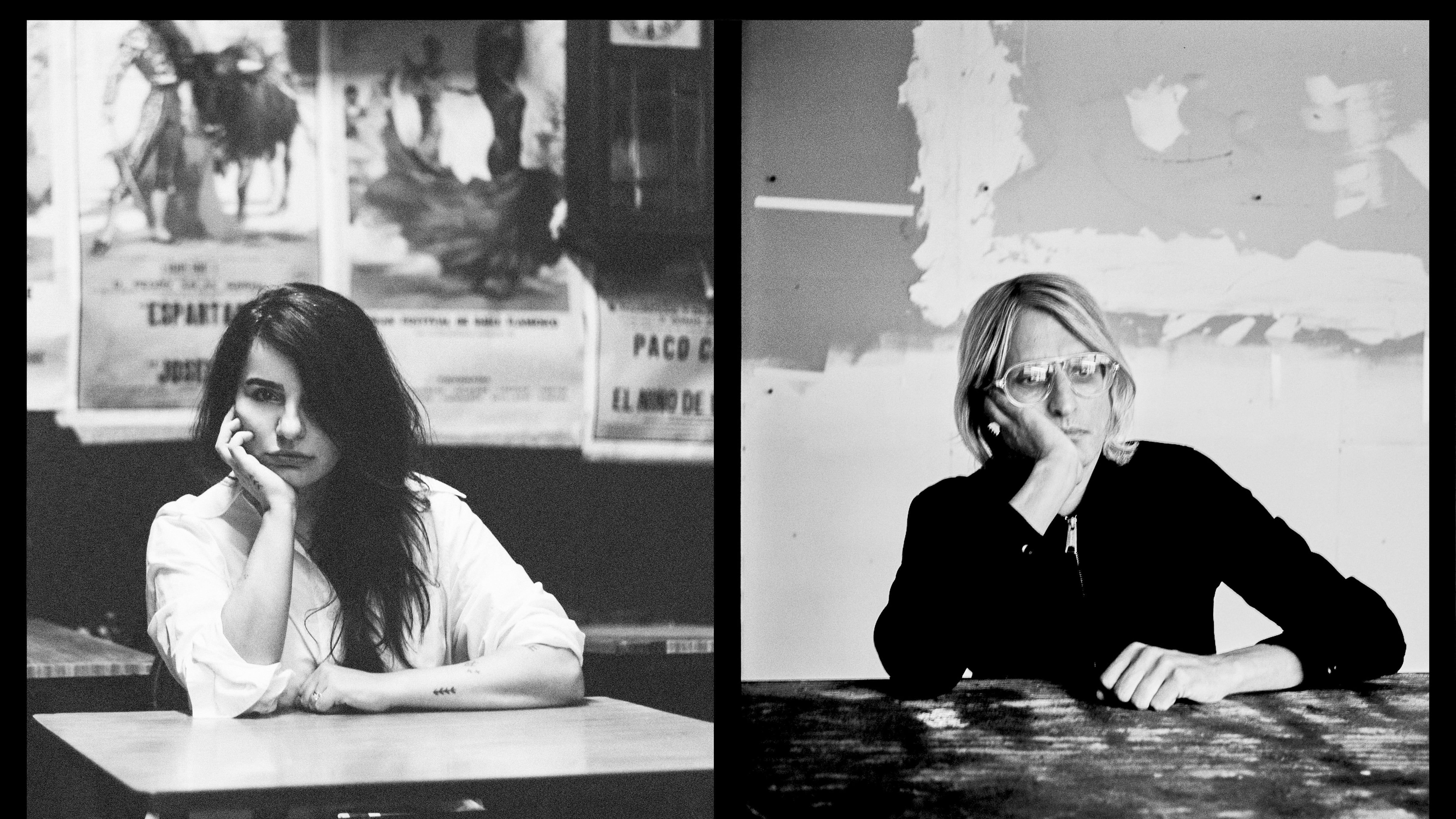Ilyas Ahmed has never actually set foot in the same room as Dania Shihab, with whom he recorded the sublime psych-folk album Enough for Me to Remain. That’s no problem for Ahmed; in fact, the Portland guitarist found it freeing to work with someone he’d never actually met.
“I feel like I could listen to it a lot more objectively in a lot of ways because I don’t have a personal history with the person making it,” he says.
Ahmed, 50, is a prolific collaborator in the experimental music universe. He might be best known for his collaborations with Astoria ambient legend Liz Harris, aka Grouper, and he joined the recently re-formed local post-rock band Grails for their album Anches en Maat last year—a gig he stumbled into while backing the late Damo Suzuki, singer of legendary ‘70s German band Can.
Enough for Me to Remain came together after he and the Barcelona composer Shihab both released albums on the label Geographic North. Ahmed liked what he heard and reached out, Shihab inquired about Ahmed adding some guitar tracks to a project she’d been working on, and the whole thing was recorded and finished in about two weeks without the two of them even sharing any physical space. Geographic North will release the six-song record Oct. 22.
The sound is opulent yet sparse, with Shihab threading layers of vocals between Ahmed’s spare guitar lines. Those who came to Ahmed’s work through Grouper will be right at home in its textures, but rather than being drenched in effects, Enough for Me to Remain lets every note stand on its own. It’s clearly the work of two veteran and virtuosic musicians in a flow state.
Willamette Week caught up with Ahmed to discuss the new record, the mystery and magic of collaboration and what’s next for this prolific and mercurial guitarist.
WW: Tell me about the process of building these tracks.
Ilyas Ahmed: From years of making solo records, I’m pretty good about thinking in the third person, coming up with parts where there’s enough room for other things to happen. Because I was familiar with [Shihab’s] music, I wanted to make it pretty minimal. I would send her some pieces, she would send me things back and ask for feedback. There were a couple things that I thought were perfect as they were. We worked really intensely for a couple of weeks. It became a thing to think about quickly.
Can you elaborate on the feeling of working with someone you’ve never met?
Our relationship is based on making music together. I’ve never experienced that and I’m not even really sure how to verbalize what it feels like other than that it’s cool. I always think about playing music with other people as communicating, so it’s kinda interesting to have that, having never met this other person.
Do you think that made it easier to give constructive criticism?
I generally don’t have a hard time with being critical—I don’t think that affected it too much. I’m generally just looking at the music and wondering, what does it need?
The album is only six tracks. How did you decide when it was finished?
We talked about maybe making it longer, but maybe that’s where the remoteness comes in. If you were able to get together, maybe you could generate some things that are a little bit different. But I think we were in agreement that if we did more tracks it was just going to be more of the same. The length feels right. It just felt done.
Give us a little background about how you got into music.
I was in concert band in fifth grade or something, and at some point I got into skateboarding, and then I got into punk rock through that. Skateboarding is such a foundational thing for lots of people of my generation because you get introduced to subcultures, you sort of define yourself in opposition to things, and that’s something I think certain artists gravitate towards, which I certainly did.
Any other projects coming up?
Grails are finishing up a new record as we speak. I have another solo record done, or I would say 99% done, that’ll be coming out next year.

